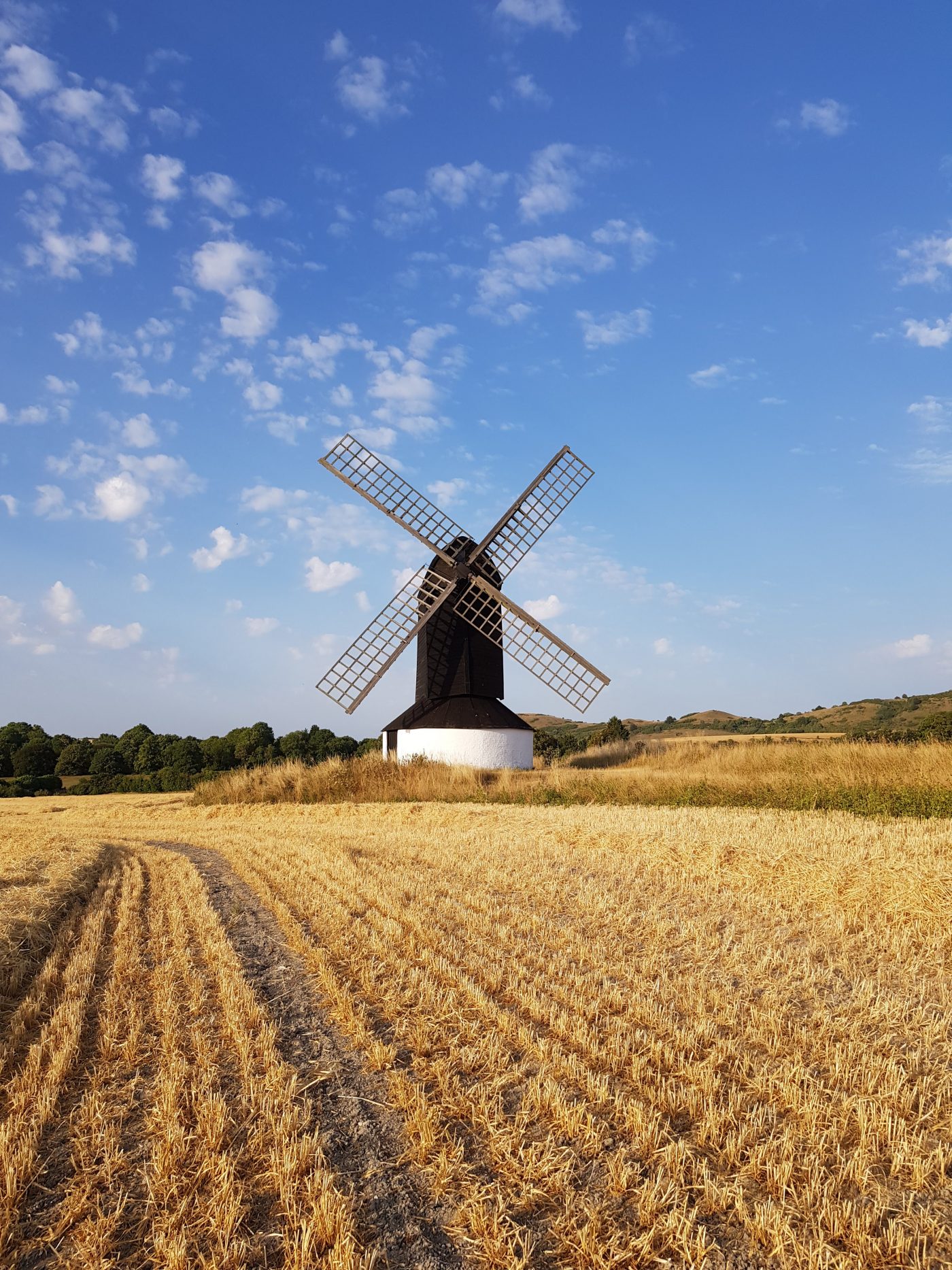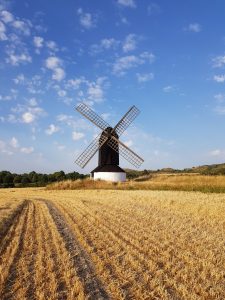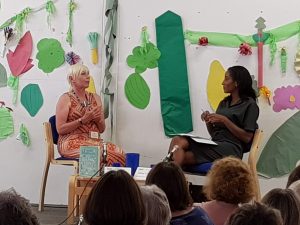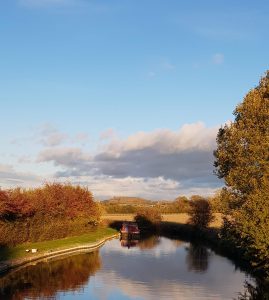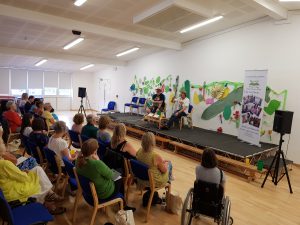
Mark Billingham, right, in conversation with Martyn Waites, BeaconLit 2018. (Above, Pitstone Windmill.)
BeaconLit 2022 – this coming Saturday, 16 July, Ivinghoe, Buckinghamshire.
The literary festival was launched in 2013. People keep coming back, to be inspired, informed and to enjoy the beautiful mystery of what happens when you turn a page (in books both physical and virtual). http://www.beaconlit.co.uk
In this year’s event former Chief Crown Prosecutor Nazir Afzal will be interviewed by Adina Campbell, BBC Community Affairs Correspondent. and a long time supporter of the festival.
Despite being quite close to London, well under an hour by train, this was hardly the ideal place in which to start a book festival, but then neither was Hay-on-Wye. Originally the Welsh town did not even have a venue big enough for the usual range of sessions and workshops.
It is easier to launch cultural events that become annual fixtures in the calendar in cities and bigger towns, where there are enough businesses and prominent people to lend their support. Smaller towns and villages must work harder, and here it usually depends on the inspiration, ambition and drive of a small group of committed people.
So it was with BeaconLit, founded by local author Dave Sivers, a veteran of the book festival circuit. He knew how they worked and believed he could create the same on his doorstep.
Many in the small but appreciative audience that attended the inaugural event on a wet midsummer Saturday in 2013 would have been happy just to see it repeated the following year, and then possibly grow from there. Realists hoped for nothing more, in those tough days of austerity and restraint.
There were just two sessions in the inaugural event, a morning in a borrowed space in a marquee set up for the village ball later that day. Murder and Mayhem explored the dark world of crime and thrillers; Pain and Passion looked at the tearful truth of romantic fiction. And a writing workshop was billed as a possible first step in a flourishing writing career.
After that uncertain start the festival now has a settled location (the village school), a loyal following and an impressive annual roster of authors, including West End Theatre and TV actors, and moderators. It is promoted in the local community library (a prime mover in the festival), through fliers in surrounding towns and a busy social media publicity campaign.
Initial support from the Arts Council England and local councils has fallen away; in its place the organisers have managed to win sponsorship from local businesses and one retailing giant (Tesco). There has been consistent support for the festival from Adina Campbell, now the BBC’s Community Affairs Correspondent. She has chaired sessions for a number of years since first becoming acquainted with the event during her time at BBC Oxford where she reported and presented on South Today.
The authors were there to promote and sell their books, as they are at bigger literary festivals. But at this more intimate event, authors are not snatched away by their PR people the minute they leave the platform, so that the public can only engage with them if they queue to buy their books. At BeaconLit writers mingle and engage with audience members, a good number of whom, I suspect, are would-be writers.
Ivinghoe, for those who want a break from over-culturally-provisioned London, is hardly remote, 36 minutes from Euston Station by the fastest train (to Tring Station), then a 7 minute drive. That might appeal to the metropolitan supporters of, say, Hay, who face a long journey deep into the country for their annual fix.
The village has the added bonus of a distinguished restaurant (The King’s Head) just up the road, a 300 year old pub (Rose and Crown), and a cafe (The Hub), now transferred to the Memorial Hall in adjoining Pitstone. One of the best surviving windmills in England is Pitstone; there is a canal walk (Grand Union), a nature reserve (BBOWT’s College Lake), and the wide open Chilterns only a mile away (the National Trust’s Ashridge estate).
Might BeaconLit, in time, turn into something bigger? There is only so much room in the village school, so organisers would settle for modest but sustained growth, considering how much competition there is from other, nearby events. Yet festival fame has arrived randomly, and accidentally in small places. Without ambition, vision and determination to see it endure, Hay would still be just one among hundreds of small tourist towns on a river, with nothing much to set it apart (although it is worth a visit for the Francis Kilvert associations alone).
It’s the same for Glastonbury. That strange and startling hill, semi-sacred in some people’s eyes, has its own pulling power, but you’d find similar camping fields with a tendency to turn to quagmire all over England. And any number of stately homes know that, given the break, they could have hosted a music festival just as compelling as WOMAD, World of Music, Arts and Dance. So pose the question again in ten years time.

